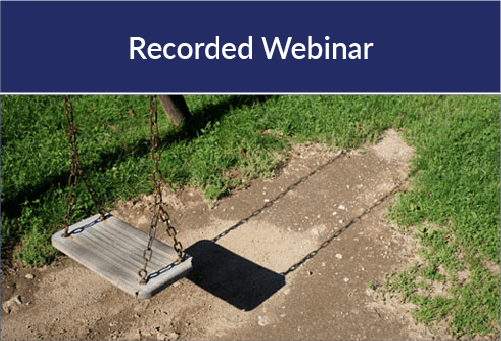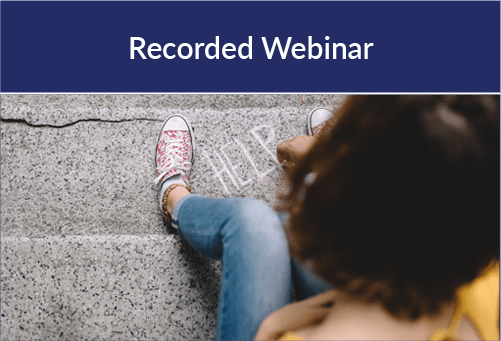


Explore and discuss the application of Forensic Genetic Genealogy (FGG) and the ways it aids in investigations. Techniques instructed will include tips in using genealogy to help establish the identities of cold case suspects and assist with identifying human remains. Instruction is provided by experienced investigators who have gained expert knowledge in their application of forensic genetic genealogy through real-life cases. Discuss topics including forensic genealogy techniques and investigative strategies for developing leads and information, as well as working with private labs and other related resources.

The AMBER Alert Best Practices – Law Enforcement Field Guide is a companion to the AMBER Alert Best Practices Guide and is aimed at law enforcement agencies and 1st Responders. It is designed to provide administrators with a document on what to expect in the event of an endangered missing or abducted child investigation, as well as provide their personnel with a reference manual to help jump start an effective response and investigation. The webinar will focus on raising awareness of areas that are consistently shown to be relevant and have an operational impact in these types of cases as well as how the guide can assist.

Drug endangered children are part of a very large, and growing population of children whose lives have been seriously and negatively impacted by dangerous drugs. Thousands of these children across our country go unnoticed and do not receive the necessary care and treatment to heal from these abusive environments. If ignored and left unsupported these children continue to be victims caught in a cycle of drug abuse. This Core Drug Endangered Children (DEC) Awareness training looks at overcoming the challenges in aligning the agencies and systems responsible for preventing, intervening, and treating these issues to change the trajectories of the lives of drug endangered children and break multi-generational cycles of abuse and neglect.

911 telecommunicators, law enforcement officers, and support staff are the front line in ensuring National Crime Information Center (NCIC) records are entered and managed with precision. This training empowers you with the critical knowledge and skills to make each entry accurate, timely, and fully compliant. In high-stakes cases, having the right information in the system at the right moment can mean the difference between a safe recovery and a missed opportunity.

Ignored, abused, and abandoned – these are some of the chronic conditions experienced by children raised in environments where there is substance misuse or illegal drug use, manufacturing, cultivation and distribution. Drug endangered children are part of a very large, and growing population of children whose lives have been seriously and negatively impacted by dangerous drugs. During this webinar you will be provided introductory information on identifying and supporting children impacted by parental or caregiver substance misuse. Discuss how the DEC approach assists in overcoming the challenges in aligning the agencies and systems responsible for preventing, intervening, and treating these issues to change the trajectories of the lives of drug endangered children and break multi-generational cycles of misuse and neglect.

This webinar is designed for professionals seeking to deepen their understanding and enhance their skills in assisting victims in particularly challenging cases. Participants will learn to comprehensively assess the impact of trauma, implement advanced trauma-informed approaches, and utilize sophisticated treatment options and resources. By the end of this webinar, attendees will be equipped with practical tools and insights necessary for effective and empathetic victim assistance.

Join us to discuss approaches to overcoming the challenges in aligning agencies and systems responsible for preventing, intervening, and treating these issues to change the trajectories of the lives of drug endangered children. Explore best practices in breaking the multi-generational cycles of misuse and neglect. Examine steps to implement the Drug Endangered Children (DEC) Approach, a comprehensive strategy based on a common vision, collaboration that is on-going between various disciplines and agencies, and on-going changes in practice. Participate in trainer-led discussions and hands-on exercises that demonstrate how implementing collaboration enhances the likelihood of better outcomes for drug endangered children.

Gain a basic understanding of gang dynamics and the movement of gangs into the trafficking of children. Recognize the similarities and differences between gang related and gang motivated child sex trafficking versus traditional sex trafficking models as relates to recruiting, victimization, control and the methods of combating gang trafficking.

The Good Road of Life is a trauma-informed, culture and resilience-based curriculum that utilizes peer support to overcome multiple risk factors including substance misuse, historical and everyday trauma, violence prevention, suicide prevention, grief-loss, forgiveness, spirituality, healthy relationships, family preservation and communications skills. The model uses Dr. Clayton Small’s dissertation study completed at Gonzaga University that focused on wellness and healing for Native people. This is an opportunity for tribal courts, law enforcement, schools, mental health, social services and treatment programs to collaborate on a less punitive approach in the healing of their communities.

Investigating a child sex trafficking case while recognizing the need for advocacy throughout the process can be a challenge both for law enforcement and for advocates. Explore the different perspectives each bring to their contacts with victims. Identify 5 core values of partnership which will enable you to have a successful and productive team as you serve the most vulnerable of victims. Examine a victim’s perspective of a law enforcement-led advocacy team and hear how it impacted her life.
